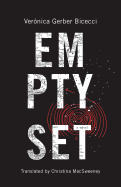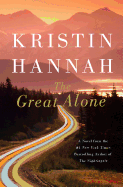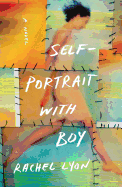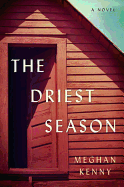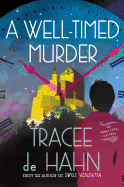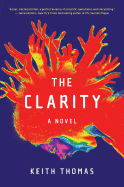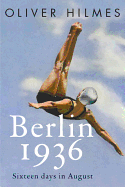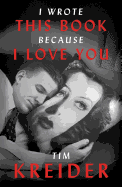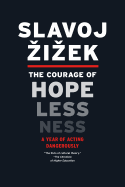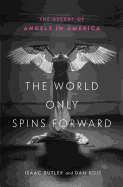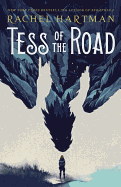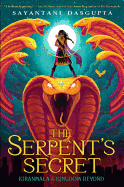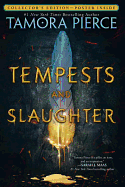 |
| photo: Elizabeth Wirija |
Akwaeke Emezi is an Igbo and Tamil writer and video artist. Her debut novel, Freshwater (Grove Atlantic, February 13, 2018), is an Indie Next selection and has been listed as a most anticipated book of 2018 by Esquire, ELLE, Cosmopolitan, Huffington Post, the Rumpus and Bustle, among others. Her short story "Who Is Like God" won the 2017 Commonwealth Short Story Prize for Africa.
On your nightstand now:
I recently discovered Cassandra Khaw's work and promptly bought all of it that I could find. She has a wonderful way with language and worldbuilding. I just finished her books Food of the Gods and Hammer on Bone, and I'm about to start A Song for Quiet. I also have Emma Reyes's memoir, The Book of Emma Reyes, which I'm looking forward to reading particularly because it was a gift from a magician who loves me.
Favorite book when you were a child:
I feel like this is a slightly impossible question to answer! There was definitely a strong British influence in most of what I read (colonialism will do that)--books by Enid Blyton, C.S. Lewis, James Herriot, and Gerald Durrell. There were series upon series--Nancy Drew, Hardy Boys, Goosebumps and Animorphs--but the book that gives me a definite surge of childhood feels is actually Chinua Achebe's children's story Chike and the River. It was such a formative part of my early years; we read it both at home and as assigned reading in school.
Your top five authors:
I read quite a bit, but there are actually very few authors who I get genuinely excited to talk about and see new work by. N.K. Jemisin is one of them; I live and hunger for the worlds she makes. Helen Oyeyemi, always; she creates fascinating work. Zen Cho, who I want to write all the things, just so I can read them. And for novels that haven't come out yet but are among my favorites because the linearity of time is irrelevant--Eloghosa Osunde and Christopher Myers.
Book you've faked reading:
Most recently? Marlon James's A Brief History of Seven Killings. People tend to talk about it with the assumption that everyone's read it; I pretty much just smile and nod at this point.
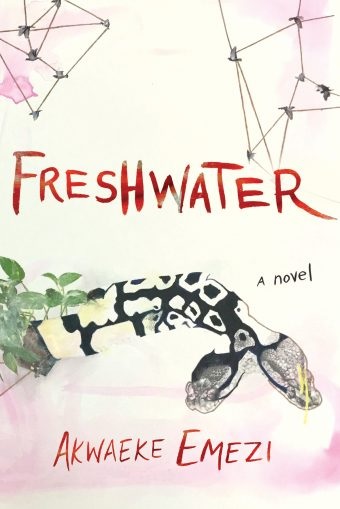 Book you're an evangelist for:
Book you're an evangelist for:
I've been aggressively rhapsodizing about Fran Ross's Oreo to anyone who will listen ever since I read it a couple of months ago. The magician recommended it to me and rightfully so--that book completely blew open my ideas around what I could write, specifically what format it could fit into. It helped me see that even in just thinking about my work, I'd been limiting it to a certain template of what I thought a book could be.
Book you've bought for the cover:
I rarely buy physical books anymore; I prefer e-books, so covers become less of a factor. However, the cover design I've enjoyed recently is the U.K. edition of Chinelo Okparanta's Under the Udala Trees; it's got great color and texture.
Book you hid from your parents:
My parents were actually quite indifferent about censoring books when I was younger, so I didn't need to hide anything from them. But if there was one book I definitely didn't want them to know I'd read, it was V.C. Andrews's Flowers in the Attic. I was about nine when I read that and my goodness, that was stressful.
Book that changed your life:
I'm going to be terribly gauche here and say Freshwater, because reading that book as I wrote it and through all the editing drafts afterwards has continued to be the most transformative experience I've ever had with a book. I had no idea what it was going to be when I started, and the person I was then is not the person I became by the time it was done. The ripples of that experience continue till today, a molting of skin that's taking a few years to play out.
Favorite line from a book:
Ah, this one is from my favorite Toni Morrison book, Love. I even made a video piece in response to it--"Hey, Celestial." It's a secret reference used between characters in the book as an affirmation of bond and power.
Five books you'll never part with:
Rumi's The Masnavi, which I'm studying to figure out how to get to nothingness. Douglas Adams's The Ultimate Hitchhiker's Guide to the Galaxy--my mother had a copy of this book and I've loved it since I was little. Anne Carson's Autobiography of Red, for sentimental reasons involving the magician. Kuzhali Manickavel's Insects Are Just Like You and Me Except Some of Them Have Wings; I used to read her blog and I just love the writing in this book. Grace Jones's memoir, I'll Never Write My Memoirs, which gave me incredible insight into how to be a hypervisible artist presenting as one's full self (aka life goals).
Book you most want to read again for the first time:
Any of Octavia Butler's books. I deeply envy everyone who hasn't read them yet because they get the pleasure of doing so.
Book you carry around with you:
I'm going to collapse about 40 books into one and say Terry Pratchett's Discworld series. I honestly wish my favorite authors who do series would write a world as extensive as this, it's perfect to jump into at any time and large enough that it never gets boring to revisit.
Reading with...Akwaeke Emezi
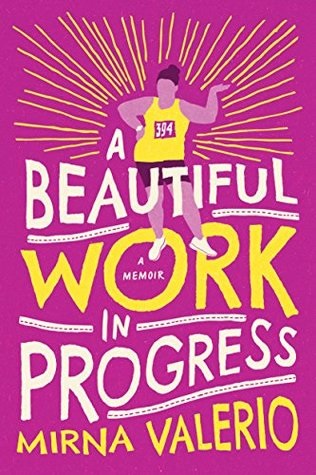 In her memoir, A Beautiful Work in Progress (Grand Harbor Press, $14.95), Mirna Valerio recounts her own path to ultrarunning despite the many stereotypes working against her. There's the much-lauded Eat & Run (Mariner, $14.95), the story of Scott Jurek's own incredible rise to ultrarunning fame (and his forthcoming book, North, looks just as promising). Alex Hutchinson's Endure (Morrow, $27.99) documents the science that ties mental and physical performance together, and while it is "not a running book," as Malcolm Gladwell points out in the introduction, it offers a wealth of insights into the science of endurance sports.
In her memoir, A Beautiful Work in Progress (Grand Harbor Press, $14.95), Mirna Valerio recounts her own path to ultrarunning despite the many stereotypes working against her. There's the much-lauded Eat & Run (Mariner, $14.95), the story of Scott Jurek's own incredible rise to ultrarunning fame (and his forthcoming book, North, looks just as promising). Alex Hutchinson's Endure (Morrow, $27.99) documents the science that ties mental and physical performance together, and while it is "not a running book," as Malcolm Gladwell points out in the introduction, it offers a wealth of insights into the science of endurance sports.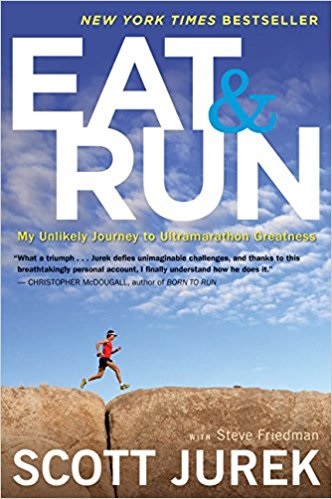 Catriona Menzies-Pike weaves the history of women's running together with her own tale of grief, loss and mental health in her incredible memoir The Long Run (Crown, $25). It was here that I came closest to an answer for myself. To borrow her words: I want to run "for long enough that being still would be a consolation."
Catriona Menzies-Pike weaves the history of women's running together with her own tale of grief, loss and mental health in her incredible memoir The Long Run (Crown, $25). It was here that I came closest to an answer for myself. To borrow her words: I want to run "for long enough that being still would be a consolation." 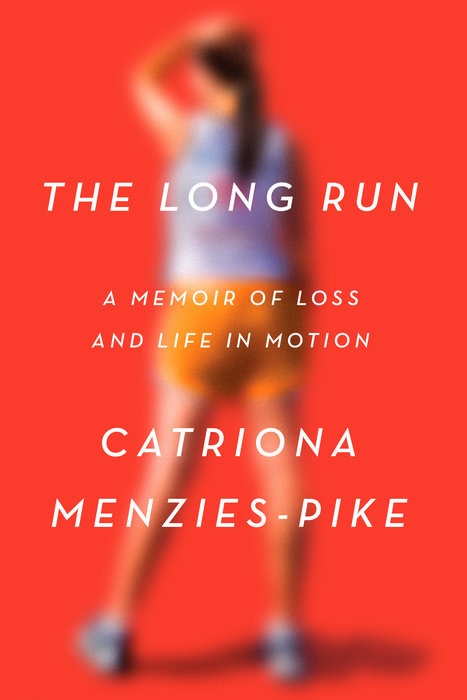 Every one of these runners runs for different reasons. What makes their stories so compelling, though, is not the clarity they offer in answer to the question why. It is the fact that each and every one of them recognizes the ways that pushing the boundaries of their physical endurance, whatever that may be, is tied to pushing through the boundaries of their individual mental limitations. Those stories of persistence are the ones that will resonant with any reader--even those who may think running a marathon and then some is just a touch too much. --Kerry McHugh, blogger at Entomology of a Bookworm
Every one of these runners runs for different reasons. What makes their stories so compelling, though, is not the clarity they offer in answer to the question why. It is the fact that each and every one of them recognizes the ways that pushing the boundaries of their physical endurance, whatever that may be, is tied to pushing through the boundaries of their individual mental limitations. Those stories of persistence are the ones that will resonant with any reader--even those who may think running a marathon and then some is just a touch too much. --Kerry McHugh, blogger at Entomology of a Bookworm



 Book you're an evangelist for:
Book you're an evangelist for: